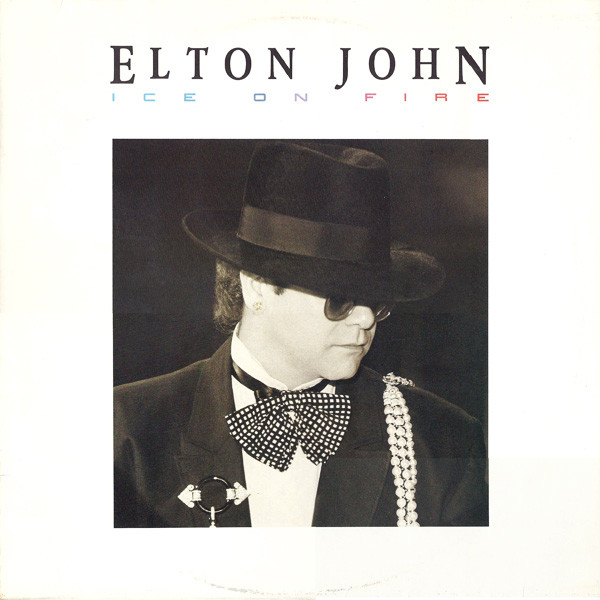 For his next trick, Elton wrote an entire album with Bernie Taupin, brought back Gus Dudgeon to produce, but overlooked his trusty rhythm section to rely on hired guns and threw himself back into the ‘80s. After all, Bernie was fresh off the success of “We Built This City” for Starship. But perhaps the biggest crime about Ice On Fire was the mullet.
For his next trick, Elton wrote an entire album with Bernie Taupin, brought back Gus Dudgeon to produce, but overlooked his trusty rhythm section to rely on hired guns and threw himself back into the ‘80s. After all, Bernie was fresh off the success of “We Built This City” for Starship. But perhaps the biggest crime about Ice On Fire was the mullet.Typical of its era, “This Town” sounds like the theme from a buddy cop soundtrack, and even though the horns are real, they sound canned, and Elton’s delivery is near rap. And that would indeed be Sister Sledge on the backing vocals. At least “Cry To Heaven” is a return to a piano ballad, and it mostly works except for the stock Yamaha DX-7 chime that will always sound like a Taco Bell commercial. Despite the cringey lyrics, “Soul Glove” is generically catchy, with a popping bass by Deon Estus, who’d recently worked with Wham! (More on them later.) “Nikita” was the surprising first single, a non-binary-specific love song with allusions to Soviet relations in the thawing of the Cold War. “Too Young” features the Queen rhythm section, not that you’d notice, particularly with subject matter that would make Benny Mardones blush.
Credited to six writers, “Wrap Her Up” is excruciating enough for George Michael’s falsetto response to every line, and gets worse with the litany of female icons over the end, ranging from Marilyn Monroe to Nancy Reagan. “Satellite” is loaded with wacky space effects and an intro that sounds like a ripoff of Bowie’s “Fame”, but the song itself mostly improves on that. Unfortunately, “Tell Me What The Papers Say” is completely cheesy in a not-good way, and the fake horns cover up the bass and piano way too much. “Candy By The Pound” might have potential if not for the robotic backing. All this makes the closing ballad “Shoot Down The Moon” both welcome and frustrating.
The cassette and CD included an extra track in “Act Of War”, a duet with R&B singer Millie Jackson that completely jarred at the end of the program. For some reason this was not included on the eventual expanded CD, which instead added three live songs used as B-sides as well as “The Man Who Never Died”, an instrumental written for John Lennon. No version of the album included the all-star single “That’s What Friends Are For”, wherein Elton sang with Dionne Warwick, Gladys Knight, and Stevie Wonder. This was a charity single released to raise money for AIDS research, which would become a key campaign for Elton once he got sober. But that was some time away.
Elton John Ice On Fire (1985)—2
1999 CD reissue: same as 1985, plus 4 extra tracks
No comments:
Post a Comment